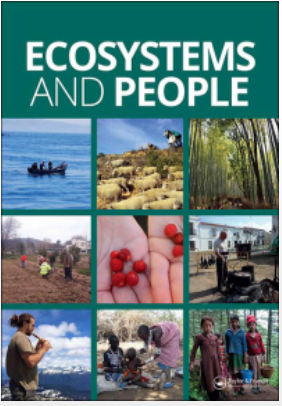Integrating stakeholder preferences into ecosystem services mapping in Yala wetland, Kenya
IF 3.7
Q1 Agricultural and Biological Sciences
引用次数: 3
Abstract
ABSTRACT Wetlands such as the Yala swamp in Kenya are among the most important and increasingly threatened ecosystems globally due to their ecological significance and complexity, and the importance of the ecosystem services (ES) they provide to wetland communities. Appropriate governance and management of wetlands thus require the use of interdisciplinary tools that take into account both ecological and social considerations. This study used the matrix model combining social preferences with GIS-based maps of land use/land cover (LULC) to analyse the capacity of the Yala swamp to supply ES (flows). We engaged a total of 132 participants who manage and use natural resources in the wetland through a participatory process to identify ES, map LULC, and score the flow of ES on a scale of 0 to 5 using the matrix model. We also analysed the impacts of stakeholder characteristics (gender, environmental expertise, and location) on the scoring of the matrix. Results showed high average scores (score of 4) for trees and shrubs, papyrus, and water bodies across a range of provisioning, regulating and cultural services. The study found that gender and location had little influence on the respondents’ scores, while environmental conservation experts provided scores significantly higher than local resource users (farmers/fishermen) across the ES types. Overall, the study contributes to understanding: 1) the importance of linking LULC with ES provision to inform landscape management and 2) the need to incorporate a range of stakeholder perspectives in studies making use of expert knowledge and preferences, for inclusive management.将利益相关者偏好整合到肯尼亚雅拉湿地生态系统服务制图中
摘要肯尼亚亚拉沼泽等湿地是全球最重要、威胁最严重的生态系统之一,因为其生态意义和复杂性,以及它们为湿地社区提供的生态系统服务的重要性。因此,湿地的适当治理和管理需要使用兼顾生态和社会考虑的跨学科工具。本研究使用了将社会偏好与基于GIS的土地利用/土地覆盖图(LULC)相结合的矩阵模型来分析亚拉沼泽提供ES(流量)的能力。我们共邀请了132名参与者,他们通过参与过程管理和使用湿地中的自然资源,以识别ES,绘制LULC地图,并使用矩阵模型在0到5的范围内对ES流量进行评分。我们还分析了利益相关者特征(性别、环境专业知识和地点)对矩阵评分的影响。结果显示,在一系列供应、监管和文化服务中,树木和灌木、纸莎草和水体的平均得分很高(4分)。研究发现,性别和地点对受访者的得分影响不大,而环境保护专家在ES类型中的得分明显高于当地资源使用者(农民/渔民)。总的来说,该研究有助于理解:1)将LULC与ES提供联系起来,为景观管理提供信息的重要性;2)需要在利用专家知识和偏好的研究中纳入一系列利益相关者的观点,以实现包容性管理。
本文章由计算机程序翻译,如有差异,请以英文原文为准。
求助全文
约1分钟内获得全文
求助全文
来源期刊

Ecosystems and People
Agricultural and Biological Sciences-Ecology, Evolution, Behavior and Systematics
CiteScore
7.80
自引率
11.30%
发文量
40
审稿时长
42 weeks
期刊介绍:
Ecosystems and People is an interdisciplinary journal that addresses how biodiversity and ecosystems underpin human quality of life, and how societal activities and preferences drive changes in ecosystems. Research published in Ecosystems and People addresses human-nature relationships and social-ecological systems in a broad sense. This embraces research on biodiversity, ecosystem services, their contributions to quality of life, implications for equity and justice, and the diverse and rich ways in which people relate to nature.
 求助内容:
求助内容: 应助结果提醒方式:
应助结果提醒方式:


